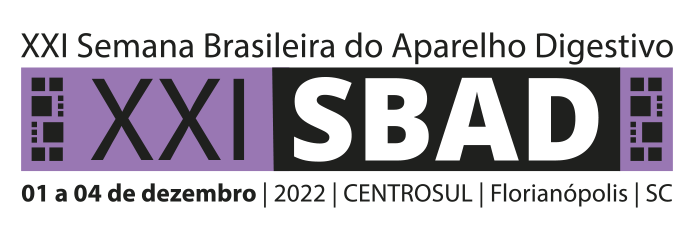Dados do Trabalho
Título
LABORATORIAL FACTORS AND NODULES NUMBER ANALYSIS IN PATIENTS WITH HEPATOCELLULAR CARCINOMA (HCC) AND INFECTED WITH HEPATITIS C (HCV): A POTENTIAL PREDICTOR ALGORITHM
Resumo
The hepatitis C virus (HCV) is responsible for the infection of 3% of the world’s population, representing around 130 to 170 million people and is the cause of death of 2.4 million people every year. The virus is classified in 7 genotypes, being the type 1 (46.2%) the most predominant worldwide. Commonly, patients infected with HCV develop pathologies such as fibrosis, cirrhosis and/or hepatocarcinoma cellular (HCC), where HCV is responsible for 25% of HCC cases. Three laboratorial parameters are commonly altered in a scenario with HCC and HCV: Alpha Fetoprotein (AFP), indirect bilirubin (IB) and platelets. AFP is a glycoprotein synthesized by the liver, yolk sac, the fetus’ and adults’ intestine, used as a tumor marker for HCC. IB is a blood protein, produced from hemoglobin degradation, conjugated in the liver under regular conditions and related to liver injury. Platelets are components of the blood and participate in tissue coagulation processes, as well as in tumorigenesis. Analyze the platelets, AFP and IB quantities in HCC+HCV positive patients considering the number of nodules. The study was made with 59 HCC patients infected with the HCV genotype 1, age 62±8,5, in which 62% were men. Peripheral blood samples were collected from the patients.
The mean of platelets, AFP and IB in the general group was 113,915.2±48,754.6, 479±1,724.5 and 1.42±1.04, respectively. However, differences were observed while comparing the groups of uni and multinodular HCC for the aforementioned markers. Uninodular HCC patients (44.2%) had 124,538.6±46,324.3 in platelet count, 151±1,800.3 in AFP and 1.28±1.08 in IB count. Nevertheless, multinodular (55.7%) had 105,454±44,029 in platelets count, 737.4±1,724.5 in AFP and 1.56±1.04 IB. The present results suggest a worse prognostic for the multinodular HCC patients based on the laboratorial markers’ measures.Although there is a 98% effective treatment for hepatitis C, the HCC represents a divergent issue and treatment. The HCV positive patients are treated against the virus, however, the cancer is still there. Additionally, imaging diagnostic methods can be costly for the patients who may not have access to them. Thus, an algorithm using platelets, IB and AFP could be applied on patients with HCC+HCV diagnosis, for a better follow-up, treatment targeting, and prognostic prediction, avoiding invasive and costly procedures as well as biopsy and MRI, respectively.
Key-Words: HCC, HCV, Laboratorial factors.
Área
Gastroenterologia - Fígado
Autores
PENELOPY MACÊDO, REBECA BARBOSA RAMALHO, JOÃO VICTOR FARIAS, LUYDSON VASCONCELOS, LEILA PEREIRA, RODRIGO CARMO, ERIKA SIQUEIRA, DAYSE AROUCHA, PATRÍCIA MOURA
